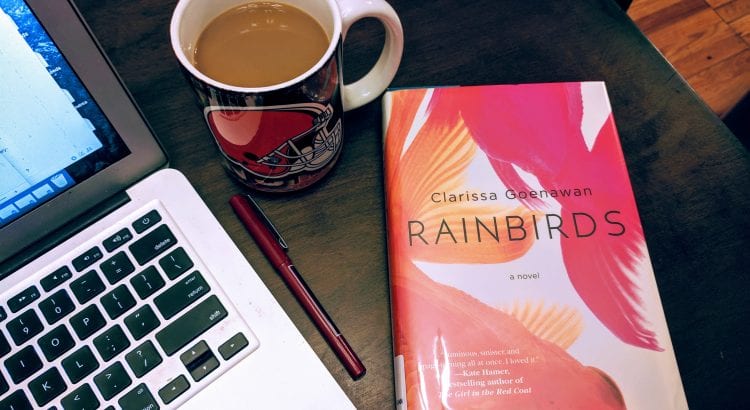I had to add Clarissa Goenawan’s new novel “Rainbirds” to my list of books to read this month because I somehow got an early-enough library hold on it and the next library patron in line WAS GOING TO HAVE TO PRY IT AWAY FROM MY COLD DEAD HANDS.
Speaking of cold dead hands. The book is about a newly minted college graduate who lives in Tokyo. His older sister was just murdered in the small, mysterious town that she moved to about 10 years prior. He goes to the community to gather her things but ends up taking her teaching role and living in her old room, which, by the way, is in a creepy mansion that belongs to a suspiciously cold politician. Oh, and his wife. Who doesn’t speak. And stays in bed all day. And their daughter died mysteriously.
It’s excellent so far, and I recently skipped to the back of the book (careful not to catch a glimpse of any words of the last few chapters, lest a big reveal be exposed!) to see if she had written any acknowledgements.
I love reading author acknowledgment pages. They’re more in-depth than a front-of-the-book dedication and often give some clues or insights into the author’s personality or writing process. I love when they feel a little loopy or giddy; like the writer just can’t believe they pulled this huge feat off and are, justifiably so, as happy and as exhausted and as over it as they’ve ever been.
If a great story ending is a free piece of gum at the bottom of the Cracker Jacks, the acknowledgement page is the cartoon folded in the gum packaging.
Clarissa didn’t have an acknowledgement page, though. Instead she had an author’s note, a variety of which I was unfamiliar and, thus, presently surprised. It told me a story about her. And reminded me why I read.
Enjoy (then go wait in line to get the book to read “Rainbirds”!):
“I used to read a lot as a kid–at least a book a day. I would spend my recess periods in the library with my best friend. I loved getting lost in the new and fascinating world of each story, and I knew I wanted to be a writer.
However, when I went off to college, studies became my priority. As I struggled with mounting academic work, I no longer picked up books I hadn’t been assigned. By the time I began my first job in marketing, reading had become a thing of the past.
Then, one day, a colleague recommended a book to me. ‘I’ll lend you my copy,’ he said. ‘I’m sure you’d like it.’
I politely turned him down. ‘I don’t have time to read.’
But he insisted I give it a try, so I relented.
That book ended up changing my life. It rekindled the wonder I’d once felt, and the dream I’d once had.
Thank you for picking up ‘Rainbirds’. I hope you’ve enjoyed reading it as much as I enjoyed writing it. And if you have, I ask that you share it with someone. A friend, a family member, or a colleague–especially one who has not been reading for quite some time.”
